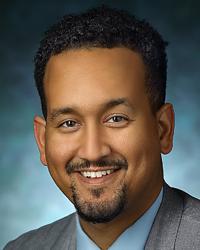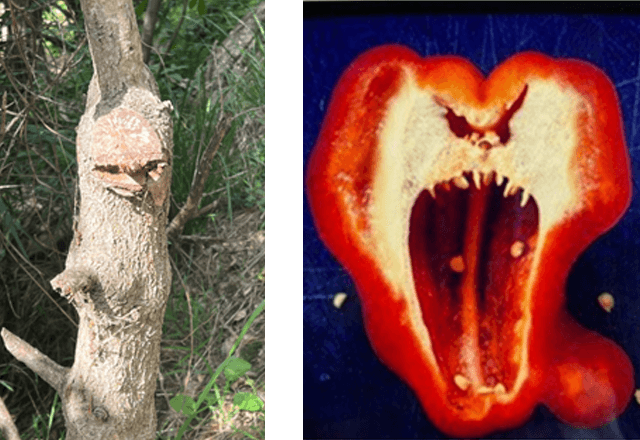-
Rachel V. Aaron, PhD

- Director, Postdoctoral Fellowship in Pain Psychology
- Assistant Professor of Physical Medicine and Rehabilitation
Research Interests: Co-occuring mental and physical health symptoms, Development and maintenance of chronic pain, Psychosocial interventions for chronic pain, The role of emotional factors in pain and illness
-
Renan Carlos Castillo, PhD

Research Interests: cognitive behavioral therapy, pain, self management interventions, structural equation modeling, Trauma outcomes
-
Megan Hosey Mastalerz, PhD

- Assistant Professor of Physical Medicine and Rehabilitation
Research Interests: Adaptation to Inpatient Hospitalization, Anxiety Management in Hospitalized Patients, Critical Illness Survivorship
-
Fenan Samson Rassu, PhD

- Assistant Professor of Physical Medicine and Rehabilitation
Research Interests: expanding access to mental health care for those living with pain, increasing initiation, engagement, and completion of psychological treatments for chronic pain, understanding patients’ perspectives on the mental health care they receive
-
Nicole Schechter, PsyD

- Director, Postdoctoral Fellowship in Rehabilitation Psychology
- Associate Professor of Clinical Physical Medicine and Rehabilitation
-
Stephen T. Wegener, PhD

- Vice-Chair for Faculty Development and Affairs, Department of Physical Medicine and Rehabilitation
- Professor of Physical Medicine and Rehabilitation
Research Interests: Improving outcomes following injury, Pain, Prevention of disability, Psychology, Rehabilitation, Self-management
Our research group focuses on projects that have the potential to improve function and quality of life and reduce disability following injury or illness. These projects include research on cognitive, behavioral, psychological and health care system factors that affect outcomes following injury.
We closely collaborate with partners in the Department of Health Policy and Management and the Major Extremity Trauma Research Consortium in the Johns Hopkins Bloomberg School of Public Health, as well as the departments of orthopaedics, psychiatry, and anesthesiology and critical care medicine in the Johns Hopkins University School of Medicine.
On this page:
Team | Projects | Contact Us
Our Research Projects
-
Principal Investigator: Stephen T. Wegener, Ph.D.
Funding Source: Department of Health and Human Services, Administration for Community Living, NIDILRR – Field Initiated Program, Grant #90IF0068
Study Information: Take Charge of Burn Pain is an interactive program aiming to help manage pain following a burn injury. It is designed to work with treatments to help decrease pain and improve function.
Burns are the fourth leading cause of injury and death in the U.S. Despite the best efforts of burn care professionals, burns frequently result in acute and chronic pain, poor functional outcomes, significant psychological distress and impaired participation in life and work for otherwise healthy individuals. People with burn injuries have limited access to comprehensive pain care due to lack of local resources, as well as financial constraints and mobility issues.
Burn pain is not a simple problem: it can affect the body, mind and activity. Pain complicates recovery and can make life difficult. This is where Take Charge comes in. In this program, participants work through a series of lessons on the computer and develop a pain management plan with help from the health care team. Take Charge recognizes that the participant plays an important role in recovery. Participants, working with health care providers, can do a lot to decrease pain, increase activity and improve quality of life. Take Charge uses techniques that have been scientifically proven to decrease pain and increase level of activity.
Recruitment and Participation Information: This study seeks to enroll individuals who experienced a burn injury at least 6 months prior to enrollment. You must be over the age of 18 with access to the internet via a desktop or laptop. Participation involves:
- Completing an online assessment of your pain, function and how you are doing
- Completing seven 25-minute online lessons at the Take Charge of Burn Pain website
- Repeating the online assessment at two and five months after finishing your lessons
For more information about the study, please go to takechargeofburnpain.org or contact Tricia Kirkhart.
-
Principal Investigator: Stephen T. Wegener, Ph.D.
Funding Source: Amputee Coalition
Study Information: Each year, an estimated 185,000 Americans undergo an amputation of a lower or upper extremity and an additional 1,000 children are born with a limb deficiency. According to the estimates from the National Health Interview Survey, approximately 1.2 million Americans are living with a limb loss. In the United States, limb loss has been acknowledged as a significant public health issue and strategies have been developed to reduce the burden of disease.
PALS Online is an interactive program aiming to help manage life after limb loss. It can help participants:
- Explore the ways their life has changed and how they can move forward
- Take control of their situation and become more active in their recovery
- Understand where they are on the road to recovery
- Figure out what they want to achieve
- Develop the skills to get there
Recovery is challenging and it can be difficult to manage the challenges of limb loss. PALS Online recognizes that participants play the most important role in recovery. It uses strategies and skills that have been scientifically proven to increase self-confidence and feelings of empowerment.
Recruitment and Participation Information: This study seeks to enroll individuals with limb loss over the age of 18 with access to the internet. Participation involves:
- Completing an online assessment about your pain, function and how you are doing
- Completing eight 25-minute online lessons at the PALS Online website
- Completing a second online assessment after finishing the lessons
For more information about the study, please go to palsamputeelifeskills.org or contact Tricia Kirkhart.
-
Site Principal Investigator: Stephen T. Wegener, Ph.D.
Study Information: The TARGET Project is a quality improvement initiative aimed to help patients with acute lower back pain by finding ways to prevent back pain from becoming chronic. The Department of Physical Medicine and Rehabilitation and Johns Hopkins Community Physicians are collaborating with the University of Pittsburgh.
-
Principal Investigators: Anna V. Agranovich, Ph.D. & Stephen T. Wegener, Ph.D.
Funding Source: B-Giver Philanthropic Fund
Background: This project is part of the Hopkins Pareidolia Study Group activity. In addition to the project described below, activities of this group include studies on neural mechanisms of pareidolia at the Zanvyl Krieger Mind/Brain Institute led by Ed Connor, Ph.D., and a comprehensive review of the scientific literature on pareidolia led by Susan Lynn Magsamen, MAS of the International Arts + Mind Lab in the Department of Neurology.
Read our Pareidolia Research Overview.
Study Information:
Physical and neurological injuries and illnesses can impact a person’s abilities, functions and self-image. The recovery trajectories after these events vary. Some people, while experiencing temporary changes in function or well-being, go on to supersede their baseline function in some areas. The concept of enhancing one’s life after a traumatic event is referred to as post-traumatic growth. Understanding and enhancing factors that promote post-traumatic growth is a new and exciting area of research.
The project incorporates pareidolia – the innate human ability to perceive familiar objects in unfamiliar or ambiguous places — as an intervention tool to guide positive change, promote “flexible perspectives” and facilitate post-traumatic growth during rehabilitation and recovery. Pursuit and identification of pareidolic images in nature as well as in day-to-day environments is hypothesized to increase mindful awareness and focused attention, which have documented benefits in reducing distress, pain and suffering and promoting cognitive recovery.
Examples of the pareidolia phenomenon:

The project promotes ongoing use of the pareidolia intervention and measurement of impact by:
- incorporating the use of pareidolia strategies throughout the participants’ inpatient and outpatient continuum of care;
- periodic reminders to promote engagement in using coping and self-growth skills;
- tracking impact by measuring outcomes at the end of the multisession intervention and at a three-month follow-up assessment.
Members of the rehabilitation team (physical therapists, occupational therapists and nurses) receive education and training on the pareidolia rehabilitation intervention and will support development of new perspectives in patients’ recovery.
Recruitment and Participation Information:
Participants are adult patients undergoing rehabilitation care within Johns Hopkins inpatient units and outpatient clinics, including patients with acquired brain injuries, spinal cord injuries, cancer and traumatic injuries.
For more information about the pareidolia applications, please visit the Blink to See Foundation.
For information about the study and how to enroll, please email Tricia Kirkhart at [email protected].
For Study Practice:
Guided mindfulness practices included in the Seeing in New Ways intervention are linked below:
Our Team
Tricia Kirkhart
Johns Hopkins Department of Physical Medicine and Rehabilitation

LaPricia Lewis Boyér
Johns Hopkins Department of Physical Medicine and Rehabilitation and the Division of General Internal Medicine

We are pleased to be working in collaboration with the Amputee Coalition, Phoenix Society for burn survivors and METRC - Major Extremity Trauma Research Consortium.

